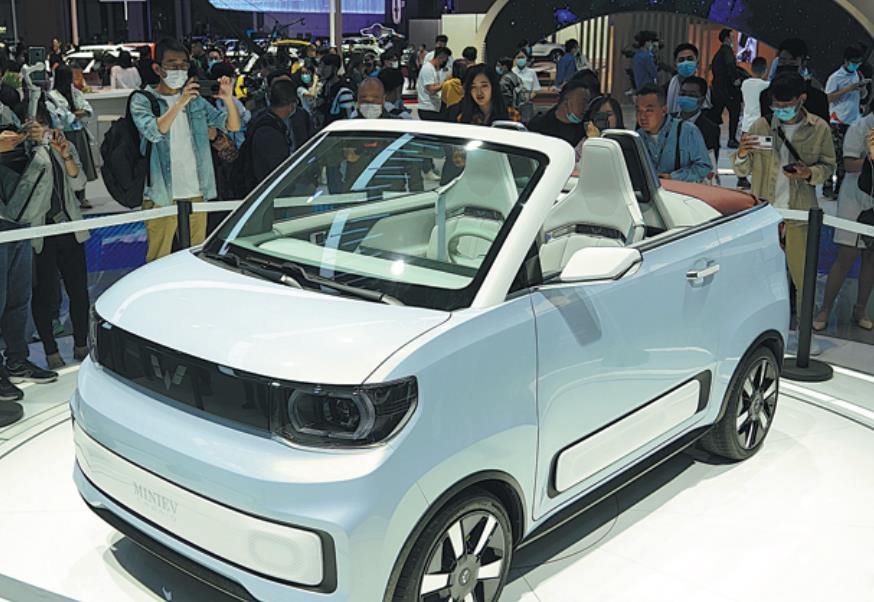Electric cars hit highway to the future


"There will be more cooperation than confrontation. Chinese companies can play a part in American carmakers' supply chain as they go electric, and their (US manufacturers') technological innovation is beneficial to Chinese companies as well," Cui said.
Among other things, CATL provides batteries for Tesla vehicles made in China, BYD is reportedly to supply Tesla, and Ford's China-made electric Mustang, the Mach-E, is equipped with BYD batteries.
The presence of such Chinese companies emerged at an early stage in Europe, where a ban on gasoline vehicles is being considered in European Union nations from 2035.
In 2019, construction began on a CATL manufacturing plant in the German state of Thuringia. The company said local production of battery cells would start in the second half of next year.
Meanwhile, Gotion High-tech Co, based in Anhui province, will act as a technology partner to help Volkswagen produce battery cells at the carmaker's plant in Salzgitter, Germany.
Roy Lu, a Gotion executive, said, "Europe is trying to catch up in terms of battery technology, so local carmakers and governments want to invite competent companies over to help boost the sector."
Another Chinese company, Envision AESC, will build a $2.4 billion battery plant in France to supply Renault. Envision aims to produce 9 gigawatt hours of batteries in France in 2024 and 24 GWh by 2030.
Cooperation is not limited to batteries. Volkswagen is working on advanced driver assist functions with China's DJI, which is better-known for its drones.
Ford said it will put to use in the US the experience gained from China.
Jim Farley, Ford CEO, said in an earlier interview, "We see China's customers as the most advanced in terms of the digital consumer experience.
"For us to be successful … this is the know-how we can apply around the world, especially in our home market."
'New normal' cars
Despite the meteoric rise of China's electric car market, executives said some adjustments may be needed to ensure this robust growth continues.
The 1.02 million electric vehicles sold in the first six months of this year marked a year-on-year rise of 244 percent. However, the best-selling models were more-affordable mini cars, such as those from Wuling, and also desirable but expensive vehicles from companies including Tesla.
Statistics from the China Passenger Car Association show that 46 percent of electric models on the market are mini and subcompact vehicles. This means there are few choices for middle-class owners considering, for example, replacing a Volkswagen Sagitar, Ford Focus or Buick Lavida with an electric car.
Volkswagen Group China CEO Stephan Woellenstein said if the current "dumbbell-shaped pattern "does not develop into an "olive-shaped one", as seen in the gasoline market, it will be difficult for China to realize the goal of new energy vehicles accounting for 40 percent of total car sales by 2030.
"If we want new energy vehicles to become the new normal, we need normal new energy vehicles," Woellenstein said.
Freeman Shen, founder and CEO of Chinese electric car startup WM Motor, who is a former Volvo executive, said: "There was a time when many carmakers thrived on mini cars, but they soon died out. People want better and larger vehicles as they become wealthier."
























